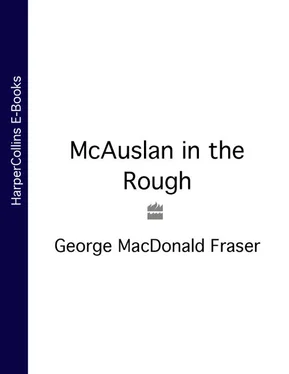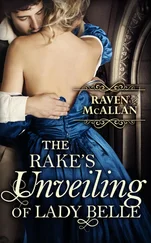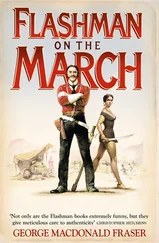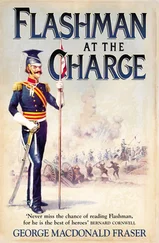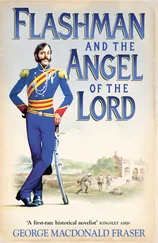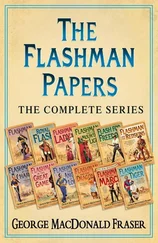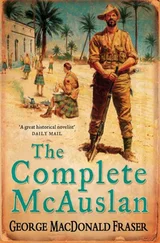“Aye, right enough. Folk would laugh at us.”
The Colonel, without thinking, said stiffly: “Oh? Who?”
“Oh … folk, sir,” said the pipey. “People … and ither regiments … might …”
The Colonel looked at him, carefully, and you could see that the die was cast. It wasn’t that the Colonel could be kidded by the pipey; he wasn’t the kind of simpleton who would say “Damn what other people and other regiments think, Crombie is going to play in the pipe band, and that’s that.” But if he now made the opposite decision, he might be thought to be admitting that perhaps he did care what other people thought. It was a very nice point, in a delicately balanced question, the pipey had just made it a little more tricky for him, and both the Colonel and the pipey knew it.
“Mr Mackintosh?” said the Colonel at length, and everyone knew he was looking for confirmation. He got it.
“The pipe-major, sir, describes Crombie as nott bad,” said the R.S.M. slowly. “The pipe-sergeant says he is good. So I take it he can qualify as a probationary piper. That bein’ so—we’ve taken him as a soldier. Whatever work he’s suited for, he should be given. If he’s fit to march in a rifle company, I’m poseetive he’s fit to march in the pipes and drums.” And again he looked at the pipe-major.
“Good,” said the Colonel, and because he was an honest man he added: “I’m relieved. I’d not have cared to be the man who told Crombie the band couldn’t take him. I’ve no doubt he knows exactly how good a piper he is.”
And Crombie played in the pipe-band—having been admitted for all the wrong reasons, no doubt. I’m perfectly certain that the Colonel, the pipe-major, and the pipe-sergeant (in his own perverse way) wished that he just wasn’t there, because he did look odd, in that day and age, and there’s no use pretending he didn’t. Although, as the second-in-command remarked, some people probably thought that a pipe-band looked a pretty odd thing in the first place; some people thought it sounded odd, too—not as odd as those bands one saw at the cinema, though, with the chap Armstrong and fellows called Duke and Earl something-or-other. Probably not titled men at all, he suspected.
Personally, I was glad about Crombie. It wasn’t just that I felt the same way as the R.S.M. (that deep and mysterious man), but that I could see that Crombie loved what he was doing, and was good at it. And when I review my memories of that pipe-band now, thirty years on, I don’t think of Crombie at all, which probably proves something. Mention “pipers” to me, and my immediate recollection is of “Johnnie Cope”, and the way they used to batter our ear-drums on a Friday at dawn.
Incidentally, that peculiar little bit of subaltern-baiting came to an abrupt end, thanks to the cunning of Lieutenant Mackenzie, in a week when I was out on detachment. It seems that the Colonel stayed late in the mess one Thursday night, his wife being away in Cairo, and yarned on with the subalterns in the ante-room until after two in the morning. And being too tired to make the two-mile drive home to the married quarters, he accepted the suggestion of Mackenzie that he stay over for the night—in a vacant room in the subalterns’ quarters. So the Colonel borrowed a pair of pyjamas and burrowed in for the night, remarking cheerfully that he hoped he’d sleep as soundly as he used to do when he, too, was a one-pipper with not a care in the world.
“And he did, too—until precisely 6 a.m.,” Mackenzie informed me later. “And then the pipey and his gang sneaked up, as usual, and took deep breaths, and started blowing the bloody roof off, right outside the old boy’s kip. I’ve never,” Mackenzie went on contentedly, “actually seen a hungry vulture with a firecracker tied to its leg. And, brother, I don’t need to. He came out of that room like Krakatoa erupting, fangs bared and blood in his eye. I’d no idea the old man could shift like that. And I’ll bet you’ve never seen an entire pipe band in full flight, either—not just retreating, but running like hell, and somebody with his foot through the big drum. If the Colonel hadn’t been in bare feet, he’d have caught someone, and there’d have been murder done. Anyway, when the smoke had cleared, he was understood to say that the pipe-band could henceforth sound ‘Johnnie Cope’ on the other side of the barracks, round Support Company, and if they ever set foot within two hundred yards of any officers’ quarters again, he, personally, would reorganise them in several unusual ways. This is an edited version, of course. And that,” concluded Mackenzie smugly, “is the pipey’s eye on a plate. Thank your clever old Kenny. We’ll sleep in peace on Fridays after this.”
Strangely enough, we didn’t. Probably we were suffering from withdrawal symptoms, but Friday reveille, with only the distant drift of the band, found us fractious and peevish. Even my room-mate said he missed it, rather; he liked the bit where the drummers crashed out their tattoo at the beginning, it made him feel all martial, he said. We didn’t actually go the length of asking the band to come back, but there was no doubt of it, Friday wasn’t the same any more.
The only time I heard them beat reveille outside the subalterns’ quarters again was a long time after, when we had moved back to Edinburgh, and the old Colonel had gone. It was on my last Friday in the Army, just before I was demobilised, and I like to think it was the pipey’s farewell gift. It had all the old effect—I finished up against the far wall, thrashing feebly in a state of shock, while “Johnnie Cope” came thundering in like a broadside. I had a new room-mate by this time, a stranger to the battalion, and when he could make himself heard he announced his intention—he was a large, aggressive young man—of going out and putting an immediate stop to it.
“Don’t you dare,” I shouted above the din. “Let them alone. And think yourself privileged.”
Nowadays, in middle age, I’m accustomed to waking up in the ordinary way, with a slightly fuzzy feeling, and a vague discontent, and my old broken shoulder aching, and twinges in my calves and ankles. And sometimes, if my thoughts turn that way, I can think smugly that one of the compensations nowadays is that there are no tables to scrub, or men of ill-will hitting the coal-bucket with the poker, or hounding me out into the ablutions through the snow—and then I feel sad, because never again will I hear “Johnnie Cope” in the morning.
General Knowledge, Private Information
All my life I have been plagued by a marvellous memory for totally useless information. Probably no other human being now alive could tell you (or would want to, for that matter), all in one breath, that the woman in whose coal cellar Guy Fawkes hid his explosives was called Mrs Bright, that Casanova, Charlemagne, and Hans Andersen were all born on 2 April, and that Schopenhauer couldn’t abide carters cracking whips beneath his bedroom window. And add, for good measure, the names of the Oxford batsmen who succumbed to Cobden’s devastating hat-trick in the University match of 1870.
You get no marks for knowing these things, as people were always telling me at school. Other children knew the subjunctive of moneo , and exactly where to drop the perpendicular in Pythagoras, how to dissect an adverbial clause (I didn’t even know what an adverb was, and don’t push me even now), and how to do volumetric analysis. They absorbed these matters without difficulty, and poured them out on to paper at examinations, while I sat pathetically, having scrawled my name, and the number “1” in the margin, wondering if the examiners would allow me anything for knowing that the ice-cream Chico Marx sold in A Day at the Races was “tutsi-fruitsi”, and that there was an eighteenth-century buccaneer who became Archbishop of York, that the names of the Bounty ’s quartermasters were Norton and Lenkletter, or that Martin Luther suffered from piles.
Читать дальше
